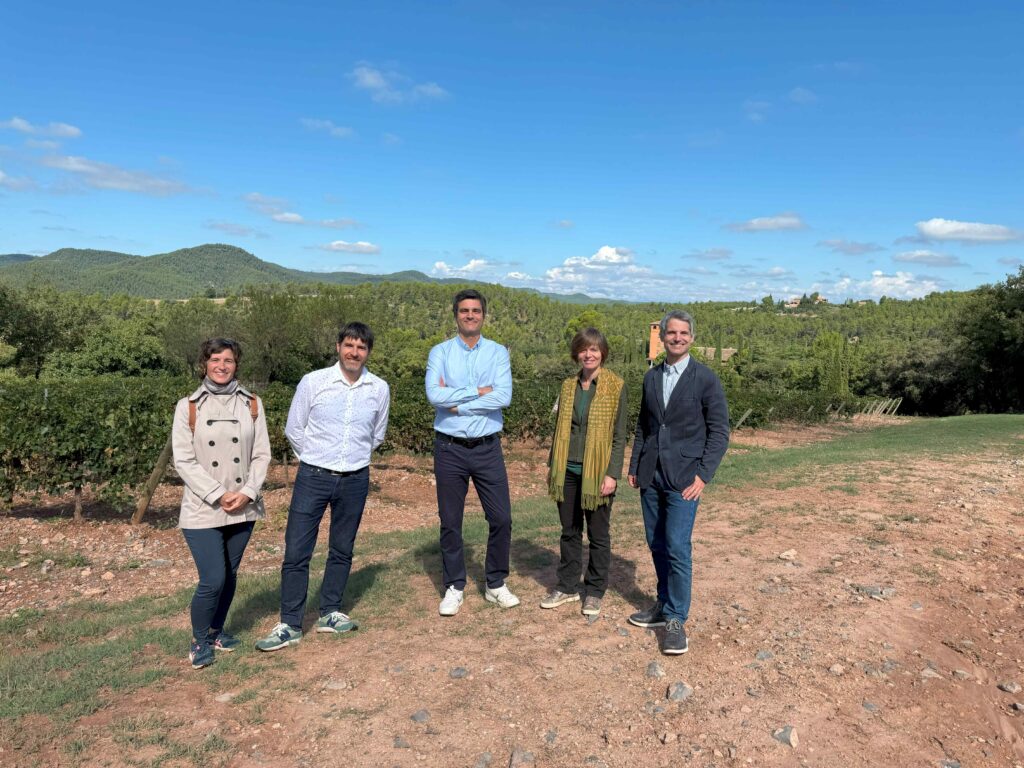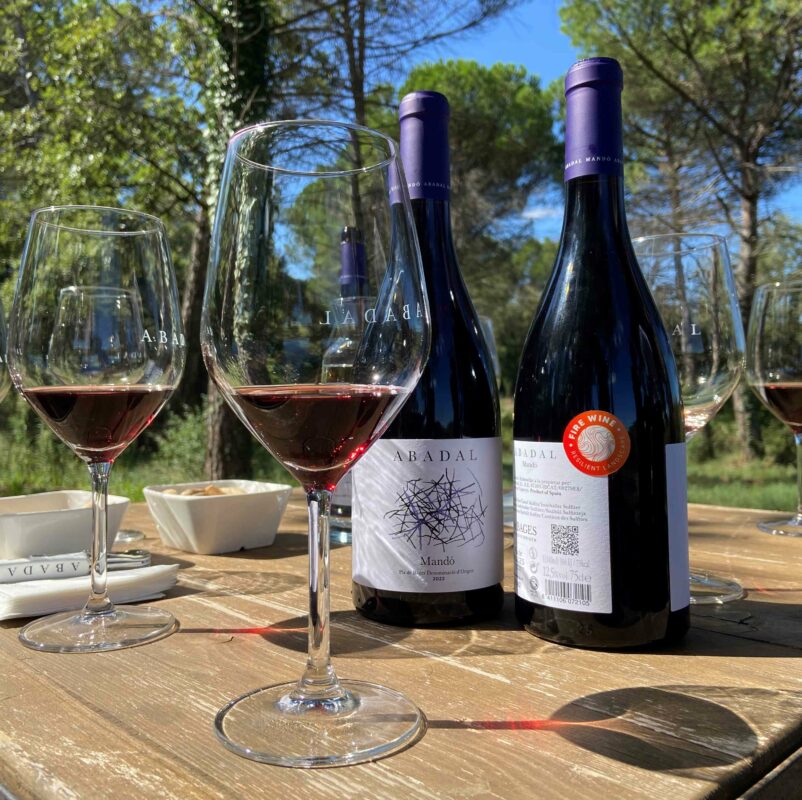Around twenty wineries, winegrower associations, and natural areas have started the process to join the FIRE WINE brand, which distinguishes them as key actors in wildfire prevention and aims to drive a paradigm shift in land management to create mosaic landscapes resilient to risk.
Celler Abadal will be the first in Europe to incorporate the FIRE WINE RESILIENT LANDSCAPE© label on its wines. The Forest Science and Technology Centre of Catalonia (CTFC) and Abadal signed on Tuesday the first collaboration agreement within the framework of the FIRE WINE initiative of the FIRE RES project, which certifies the added value contributed by producers committed to land management for wildfire prevention. With the incorporation of this label, consumers will be able to identify products that come from vineyards making a decisive contribution to the creation of mosaic landscapes that are more resilient and better prepared to face the risk of large wildfires in the context of climate emergency and global warming.

The signing event, held in the vineyards of Celler Abadal, was attended by Antoni Trasobares, director of the CTFC, Ramon Roqueta and Miquel Palau, owner and winemaker of Abadal, respectively, along with FIRE WINE coordinators Elena Górriz and Soazig Darnay. Everyone highlighted the importance of this initiative, led from Catalonia with a European scope, in opening a new paradigm around risk culture and territorial management that responds to the new climate reality, which has led to more aggressive types of wildfires that make it imperative to anticipate and change strategies.
The CTFC director Antoni Trasobares stressed that “in the scenario of climate change, we need to do things differently” at both European and global scales. “It is a paradigm shift. We need a new landscape configuration and a new way of managing it that allows us to be better adapted and safer under new climate conditions,” he added. And this, he insisted, “must be done with the people and businesses of the territory, with the administration, and through public–private collaboration.” Similarly, Ramon Roqueta, owner of Celler Abadal, noted that “the wine sector needs recognition as a protector of the landscape and the environment,” and that the FIRE WINE initiative and the FIRE WINE RESILIENT LANDSCAPE© label are examples of this. “We have learned that sustainability cannot be individual, but must have a collective and social awareness component,” he added, “and this project brings us closer to that.”
Abadal winemaker Miquel Palau stated that for Abadal, becoming the first winery to obtain the FIRE WINE RESILIENT LANDSCAPE© label “is a source of pride that should help raise awareness among consumers and the general public about the value of vineyards and agriculture in safeguarding the landscape.”
For Soazig Darnay, coordinator of the FIRE WINE initiative, it is imperative to find ways to “work collectively and collaboratively to improve the landscape” and make it more resilient and prepared for wildfire risk. She stressed that “there is an interest in working on a larger scale to take farmers out of isolation” in the face of the challenges posed by the climate emergency. The FIRE WINE initiative aims to help generate the conditions for a new framework between producers and administrations.
Growing interest among wineries
The deal signed by CTFC and Celler Abadal is the first at the European level since the European Union Intellectual Property Office (EUIPO) authorized, this July, the FIRE WINE RESILIENT LANDSCAPE© and FIRE PRODUCT RESILIENT LANDSCAPE© certifications to recognize farmers, wineries, and processors involved in the management of vineyards and crops that shape territories contributing to wildfire prevention by acting as “productive firebreaks.”
The initiative, launched at the end of August 2025, has already attracted around twenty applications from wineries, natural areas, and winegrower associations in different parts of the Iberian Peninsula to join the European FIRE WINE RESILIENT LANDSCAPE© certification. In fact, the FIRE WINE network has already expanded to other parts of Spain, France, Portugal, and Italy.
Last modified: 30 September 2025










